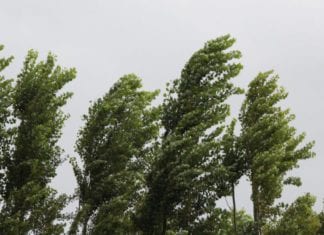Governments worldwide have led the fight against COVID-19 by introducing stern measures to keep the virus at bay. In Ireland, schools reopened at the end of August 2020, the start of the new school year. Together with the Government, academic institutions have prioritized health by introducing new policies such as physical distancing rules to keep the virus at bay.
But are such measures enough? The following article features some of the best practices from institutions across the world that Galway schools in Ireland can adopt to prevent the spread of COVID-19.
Established Practices in Ireland
The Government already made it known that it was their top priority to keep education services open during the pandemic. As a result, they introduced practices such as increased hand washing and sanitizing, social distancing, enhanced cleaning practices, change of school programs, face-covering, and school drop-offs.
Students are encouraged to refrain from sharing materials such as books and notebooks. As a result, teachers have been encouraged to give assignments, including dissertation examples and notes using e-mails and other sharing apps. However, the number of assignments that college students have to write since the pandemic started has almost doubled. Quite often, students lack resources for writing as many books and research papers are available in libraries on campus only. As a result, it would be best to seek help with your homework from a university writing centre or another company to ensure that your paper is well-researched. At this time, eduBirdie custom essay service will come in handy to compile a reference list or a rough draft for those challenging home assignments. Despite the disturbing situation, each student still needs to maintain high grades, and such essay services significantly increase your chances of scoring a high grade.

The Government has also urged students to refrain from attending school or student centers if they feel like they have been demonstrated symptoms related to the virus. But there are more measures that you, as a student, can adopt.
Practices in Other Countries
France
In France, schools are encouraged to have different class times to prevent large groups of students’ build-up. Furthermore, students are required to maintain a social distance of at least 1m.
Teachers are required to wear masks during classes. It doesn’t stop there. All children above the age of 11, together with school staff, must wear their masks while indoors. Lastly, the French clean all regularly touched surfaces, such as floors, desks, tables, and other surfaces at least once a day.
Italy
Another country that has adopted stern measures to combat the spread of COVID-19 in academic institutions in Italy. Few countries have been ravished by the pandemic the way Italy has, forcing them to adopt strict lockdowns. Fortunately, students have since come back and resumed standard learning programs.
Unlike France and Ireland, Italy has opted to have its students learn in open spaces such as big halls similar to those in theatres and museums. And even then, students are required to observe a 1m social distance space. Those in secondary school with vulnerable family members now have the option of distance learning.

Denmark
One of the first countries to allow students to return to school, Denmark adopted the staggered times practice. This measure will enable students to have different reporting times, class times, and break times. This practice prevents people from crowding in specific areas of the school premises.
Netherlands
The Dutch have made the air conditioning systems a priority to limit the spread of COVID-19. Schools are encouraged to check their ventilation systems for any faults before allowing students to continue their learning.
Spain and Germany
The Government of Spain has issued several guidelines to control the spread of the virus, one of them, washing toilets thrice a day. Additionally, students are required to observe a larger 1.5m space between themselves. Both Spanish and German Governments encourage students to study in groups or bubbles of about 15- 20 children.
In Conclusion
Campus universities and primary schools have also been forced to take rigorous measures to ensure students’ safety as most of them re-open for the first time since the start of the pandemic.
Galway schools have so far done well in preventing the spread of the virus. However, other countries have introduced different practices that Galway schools can borrow to limit the spread of COVID-19.












